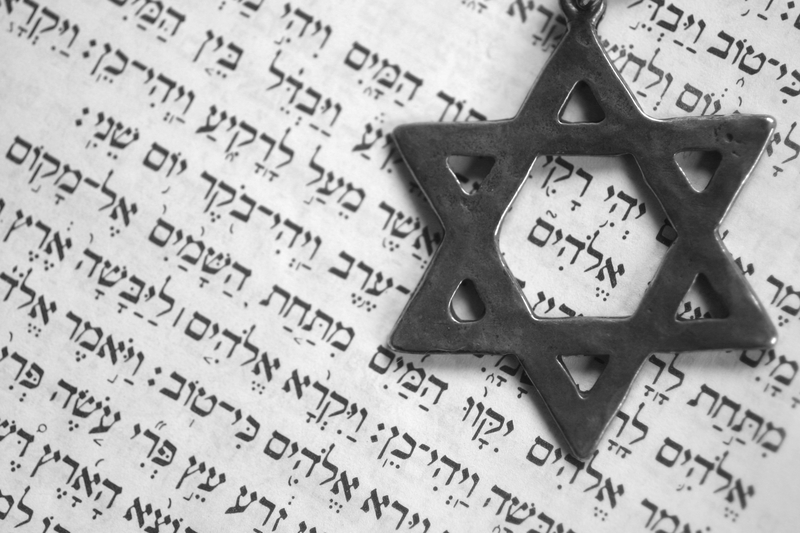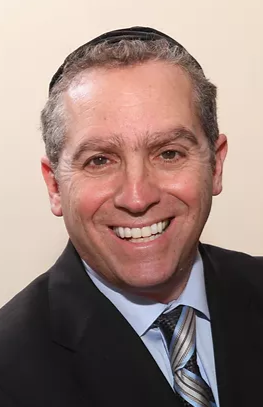
The Parasha begins: Vayehi miketz shnataim yamiim uparoah cholem. "It happened at the end of two years to the day: Pharoah was dreaming." As this is occurring, Yoseph is completing his 12 year jail sentence. The Midrash tells us that the reason behind the twelve years is that he served one year for speaking Lashon Harah about each of his 10 brothers (not including Binyamin who was not involved). While in jail, Yoseph interprets the dreams of the wine butler and the baker. The wine butler received a positive interpretation of his dream, but the baker’s fate was negative and he was hanged as Yoseph predicted.
Yoseph makes a request from the wine butler as he is being released from jail: "Remember me and don't forget me". Our Rabbis explain that the double Lashon showed a slight lack of Emunah by Yoseph, because he was placing his hope in the hands of the wine butler rather than putting all his faith in Hashem. Consequently he was punished for two more years - one additional year for each statement.
According to Or Hachaiim Hakadosh, Pharaoh was having these recurring dreams for two years. Pharaoh is very bothered by these two dreams and when none of Pharaoh's advisors are able to come up with an interpretation that satisfies him, the wine butler lets Pharaoh know of Yoseph’s unique ability to interpret dreams.
Yoseph is quickly brought out of jail, washed and groomed and brought before Pharaoh. When Pharaoh says "I heard that you can comprehend dreams and interpret them?” Yoseph responds: "That is beyond me; it is Hashem who will respond with the correct interpretation." So Yoseph listens to Pharaoh's account of his dreams and he also corrects Pharaoh regarding his own dream. He then interprets the dreams: There will be seven good and robust years in Egypt, followed by seven disastrous years of famine and decline of Egypt's economy.
Pharaoh immediately appoints Yoseph as second-in-command and Viceroy over all of Egypt, in charge of the grain and ultimately their entire economy. The question is asked by our Rabbis, how could Pharaoh put Yoseph in charge before he was able to prove that his vision of the future is accurate? The answer is that Pharaoh changed his dream and knew the correct interpretation but forgot it. So when Yoseph repeated back the correct version of Pharaoh's dreams, he realized that Yoseph’s interpretation was reliable.
Rabbi Mansour brings up the Zohar on this Parasha: ketz sam la-hoshech. “He (Hashem) brought an end to the darkness”. Clearly, the Zohar here is referring to the “darkness” of Yosef’s imprisonment. Yosef languished for many long years in a dark, dreary dungeon, until finally this period of darkness ended and gave way to the light of redemption. The question arises...what message does the Zohar seek to convey by citing this verse in reference to the story of Yosef? What does this Pasuk add to our understanding of the story?
The Zohar here is teaching us the proper perspective on “cause-and-effect” in our lives. We generally tend to assume that our success or failure is the result of circumstances that unfold. A businessman may come across a windfall of merchandise which he will sell for a handsome profit and leads him to become wealthy. If we analyze this series of events, we might instinctively say that the man prospered because he was fortunate enough to find the merchandise.
But from a Torah perspective, the exact opposite is true. Hashem decreed that the man should prosper, and therefore Hashem orchestrated events in a way that led to that outcome. The man did not become wealthy because of luck but because it was ordained from Hashem that the time had come for him to prosper.
This is the Zohar’s intent in citing the verse, ketz sam la-hoshech. Outwardly, it appears that Yosef was freed and rose to power because the butler and the baker who were with him in prison had dreams which he successfully interpreted, which then lead to Pharaoh who had an unusual dream that needed interpretation. The Zohar teaches us that it was just the opposite. Hashem decided it was time to bring an end to Yosef’s darkness, and so Hashem orchestrated this series of events in order to achieve that objective. Yosef’s release from the dungeon was not the result of these events; it was the cause of these events.
This is a fundamental lesson in Emunah that we must all learn and internalize. No matter what happens in our lives, there is always only a single cause – Hashem’s will that it should happen. And the circumstances that allow that to happen are only the effect triggered by the Divine Will.
There's an amazing story that happened with Chacham Baruch and Chacham Ovadia that illustrates how Hashem creates a cause and effect in many different circumstances. Closing the Gemara to stop learning was something Harav Ovadia would very rarely do, but when another Jew was in need, he would drop everything and run. This is an episode of a time when his willingness to help one Jew enabled him to save the life of one of his closest friends.
Approximately eighteen years ago, his close friend Hacham Baruch Ben-Haim had a serious heart attack and lay unconscious in the hospital for several months. A medical specialist in New York spoke to his doctors at length and then informed the family that the main problem was not with Hacham Baruch’s heart, but with his lungs.
There was only one doctor in the New York area who could treat this problem, and he worked far from the hospital. The family called this doctor and asked whether he would be willing to examine Hacham Baruch, but he declined, saying that he had no time. Even when they offered a large sum of money for his services, he could not be swayed. His patient roster was simply too full to make time to examine someone in a distant hospital.
The family was wondering what to do next, when Rav David Yosef, who happened to be in New York at the time and was privy to their conversation, asked whether he could perhaps speak to the doctor, who he had heard, was a non-observant Jew. “Perhaps I can speak to his Jewish heart,” Rav David suggested.
He called the doctor and asked, “Have you heard of Harav Ovadia Yosef?” “Certainly,” replied the doctor. “Well, his childhood friend is lying in the hospital, unconscious and I’m certain that Rabbi Yosef would greatly appreciate if you could examine his friend.” “Oh, he’s Rabbi Yosef’s friend?” the doctor asked in surprise. “I’m coming right down.”
Thankfully, the doctor was able to diagnose Hacham Baruch correctly. Within a few weeks he was able to leave the hospital, and he lived for another two years. When the family called the doctor’s office to settle payment, they were astonished to hear that the doctor did not want remuneration. “I didn’t’ do this for pay,” he explained. “I owed this to Rabbi Yosef.”
He then shared a fascinating tale. Several years earlier, this doctor’s son had visited Israel, and in Yerushalaim a terrorist detonated a suicide bomb right beside him. His son was rushed to Hadassah Hospital in critical condition. The doctor booked the next flight to Israel and hurried to his son’s bedside, but despite his medical knowledge, there was little he could do.
Having heard about great rabbis and their power of blessing, he asked someone to arrange for him to visit some of these rabbis. Each rabbi whose house he visited empathized with his plight and promised to pray for his son. When he reached Harav Ovadia’s home, the Rav listened to him, and then closed his Gemara and told his driver, “Come, we’re going to Hadassah.”
When they reached this young man’s room, Harav Ovadia began to recite Tehillim, with tears streaming down his face. He blessed the young man and left. The doctor continued...”My son had a miraculous recovery,” “So if Rabbi Yosef, who was thoroughly engrossed in his learning when I walked in, was willing to drop everything and run to my son’s bedside...didn’t I owe him the same in return when his friend’s life was on the line?”
“When I told my father what had transpired, he was overwhelmed with emotion,” concludes Rav David Yosef. “He said, ‘Who would have thought that my visit to that boy’s bedside would lead to Hacham Baruch’s recovery?"
On Chanukah, we learned in last week’s Parasha that both Reuben and Yehuda wanted to find a way to save Yoseph. Reuben wanted to throw him in the pit with snakes and Yehudah wanted to sell him to the Yeshmaaliim. The Torah praises Reuben but Yehudah is punished. Reuben’s plan meant that he may not survive physically, whereas Yehuda’s plan would place him in the immoral society of Egypt where he might survive physically but he will surely die spiritually. This brings us to the final days of Chanukah, where the Greeks’ motivation was not to kill us physically as Haman or Hitler wanted too, but rather to assimilate us into their culture which would kill us spiritually.
The Greeks made the oil Tameh (impure), so that it couldn't be used for the Menorah in the Bet Hamikdash. The oil represents separation because it rises in water. The Greeks wanted to break that separation and have us assimilate with them but we would not, instead we rose to the top like oil over water and overpowered them! We must always remember who we are and who our forefathers were and know that we are part of a chain that goes back over 3,300 years to our forefathers: Avraham, Yitzchak and Yaakov.
May we all learn to trust in Hashem and know that whatever difficult situation or darkness we find ourselves in, Hashem can rescue us Keheref Eiyin – in the blink of an eye as He did with Yoseph. He “put an end to his darkness” so that in a matter of hours Yoseph was elevated to become Viceroy of Egypt and second-in-command to Pharoah!
May we always remember, as Yosef did, that Hashem is in charge and that as successful as we may become, just like Yoseph Hatzadik, despite being handsome with all the money and power that anyone could ask for, he knew that all that he possessed had nothing to do of his own doing but was only due to the blessings that he received from Hashem!
Parasha perspective By Jack E. Rahmey from the teachings and guidance of Rabbi Amram Sananes.







